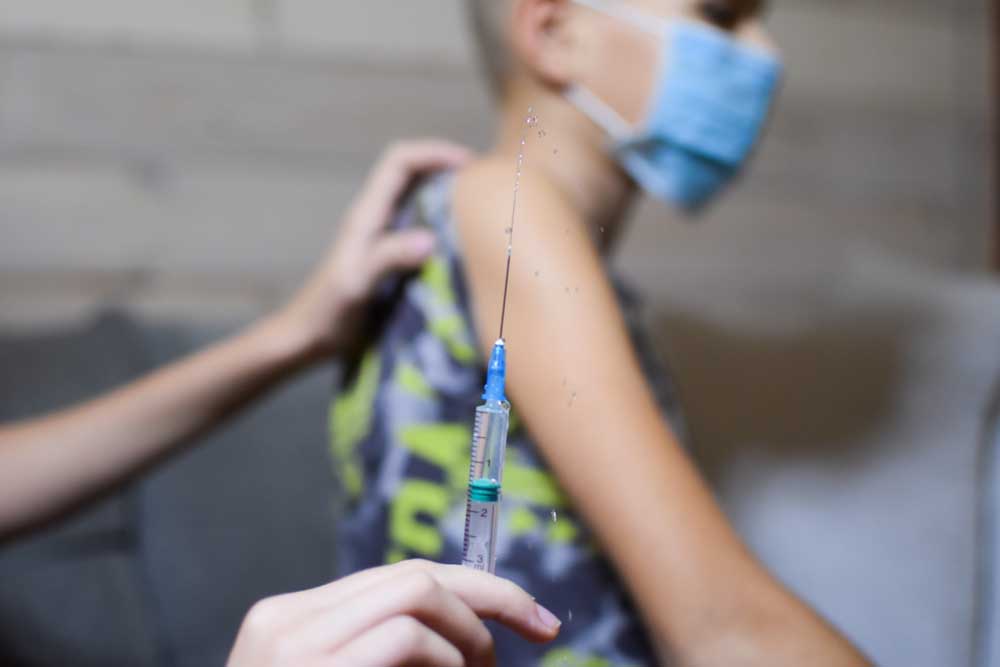Not for web
Published 9:00 pm Thursday, November 28, 2024

- Vaccine
Robert F. Kennedy Jr. is poised to take his anti-vaccine activism to the highest levels of government, should he be confirmed as health and human services secretary. The damage he could inflict isn’t theoretical. Here is how he could undo decades of progress on infectious-disease prevention.
The most obvious starting point would be coronavirus vaccines, which Kennedy has described as “the deadliest vaccine ever made.” As secretary, he would oversee the Food and Drug Administration and could pressure its commissioner to revoke vaccine approval, though such a move would surely face a slew of lawsuits. An easier path would be to exercise his authority over the Centers for Disease Control and Prevention, where he might have an ally in David Weldon, Trump’s pick to lead the agency and another promoter of anti-vaccine positions.
The most insidious method for Kennedy to undermine vaccines would be a takeover of the CDC’s Advisory Committee on Immunization Practices (ACIP), which develops recommendations for how vaccines are used. By replacing existing ACIP members with vaccine skeptics, he could say he’s not interfering with the CDC, but rather that “experts” have decided vaccines aren’t safe.
ACIP wouldn’t even have to recommend against a vaccine to have an impact. As Richard H. Hughes, a lawyer and vaccine policy researcher, explained to me, a non-recommendation affects insurance coverage. Under the Affordable Care Act, insurance plans are obligated to cover ACIP-recommended vaccines. If ACIP pulls the coronavirus shot from its recommended list, people might suddenly find themselves being charged hundreds of dollars to be vaccinated.
Torpedoing this season’s coronavirus vaccine would take a lot of effort, because it is easier to deny approvals for new products than to remove ones already in place. Going forward, however, ACIP could simply make no recommendation. The FDA could also withhold approval of updated formulations.
Such a strategy might also provoke lawsuits. As Lawrence H. Gostin, a health law professor at Georgetown University, said, “The Supreme Court would ask the question ‘Well, what scientific evidence has changed since you’ve been approving this to make you turn on a dime?’”
But Kennedy has a long history of plucking data points out of context and using them to justify questionable positions. It remains to be seen whether Weldon and Marty Makary, Trump’s selection to head up the FDA, would be willing accomplices. If they are, they could make the case that coronavirus vaccines do not meet safety standards and refuse to approve future years’ boosters.
The dystopia doesn’t end here. Kennedy could take a similarly heavy-handed approach to routine childhood immunizations, which prevented 32 million hospitalizations and more than 1 million children’s deaths between 1994 and 2023, a recent CDC study found. Kennedy has said he “won’t take away” vaccines, but he could remove shots he doesn’t like from the CDC’s immunization schedule, such as those for measles, mumps and rubella or hepatitis B. Furthermore, Kennedy could cut staff and eliminate whole divisions within the CDC, the National Institutes of Health and other agencies under his purview.
In the longer term, Kennedy could dissuade manufacturers from making vaccines by interfering with the Vaccine Injury Compensation Program. This program provides liability protection so that manufacturers can’t be sued by individuals and instead offers no-fault compensation for people who are harmed from a vaccine’s side effects.
There are two guardrails that offer a ray of hope. One is the determined workforce of career scientists at health agencies, whom Gostin believes will push back if asked to act in ways that threaten the public’s health.
Another is the states. “The federal government has no power to ban vaccines or order states to do anything about vaccines,” Gostin said. For example, when it comes to determining which shots are necessary for school entry, it’s the states that decide.
This is hardly ideal. The more that vaccine recommendations become politicized, the more likely it is that measles, polio and chicken pox will reemerge.








